Are you dreaming of a culinary career that ignites your passion for food and creativity? Crafting the perfect letter for your culinary arts application can set you apart from the competition, showcasing not just your skills but also your unique culinary philosophy. In this article, we'll guide you through key elements to include in your letter, ensuring it resonates with admissions committees and highlights your enthusiasm. So, let's dive in and explore how to make your application shine!
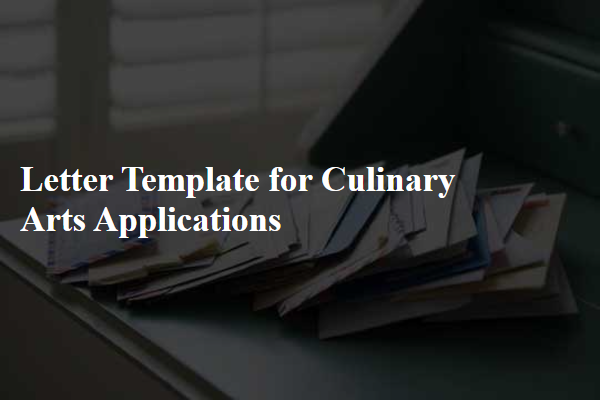
Personal Motivation and Passion
Culinary arts epitomizes creativity and precision, merging passion with technique to produce extraordinary dishes. Aspiring chefs often draw motivation from diverse experiences, such as family gatherings or cultural cuisines, igniting a desire for culinary exploration. The vibrant kitchens of renowned culinary schools, such as Le Cordon Bleu in Paris, serve as beacons of inspiration for those dedicated to mastering their craft. Influential chefs like Julia Child or Gordon Ramsay exemplify the potential impact culinary professionals can have on food culture, encouraging aspirants to pursue innovative flavors and techniques. Personal experiences, such as volunteering at local food banks or participating in culinary competitions, also nurture a deep commitment to community and sustainability, enhancing the overall culinary journey.
Relevant Culinary Experience
During my time at Le Cordon Bleu Culinary School in Paris, I completed an intensive diploma program, where I mastered classical French cooking techniques, ranging from knife skills to intricacies of pastry making. I participated in a six-month externship at the renowned restaurant, L'Arpege, which specializes in vegetable-based dishes and earned a Michelin star. My responsibilities included menu preparation and assisting with food plating, improving my attention to detail in presentation. Additionally, I volunteered at local charity events in the vibrant Montmartre district, serving over 250 meals per event. These experiences not only honed my culinary skills but also deepened my understanding of food sourcing and sustainability practices in the culinary arts industry.
Skill Highlights
Culinary arts applications showcase vital skill highlights that underscore talent and proficiency in food preparation, presentation, and flavor innovation. Techniques such as sous-vide, which involves vacuum-sealing food and cooking it to precise temperatures, demonstrate expertise in modern cooking methods. Mastery of knife skills, including dicing, julienne, and chiffonade, ensures efficiency and consistency in culinary creations. Familiarity with diverse cuisines, from Italian pasta-making traditions in Emilia-Romagna to Japanese sushi artistry in Tokyo, showcases versatility and cultural appreciation. Understanding food safety standards, such as those outlined by the Food and Drug Administration (FDA), reinforces a commitment to hygiene and quality. Additionally, creativity in plate design can elevate the dining experience, reflecting knowledge of color, texture, and composition essential for professional culinary presentation.
Career Objectives
A passionate commitment to culinary arts drives ambition in pursuing a professional career in gastronomy. Aspiration includes mastering diverse cooking techniques, with a focus on French cuisine and molecular gastronomy, to create innovative dining experiences. Interest lies in engaging with sustainable practices, emphasizing farm-to-table initiatives, and sourcing local ingredients, particularly from regions like California and Oregon. Desire exists to contribute creatively to a high-end restaurant setting, ensuring menu offerings reflect seasonal trends while prioritizing nutritional balance. Long-term goals encompass obtaining certifications from renowned culinary institutions such as the Culinary Institute of America and eventually leading a kitchen as an Executive Chef, fostering a collaborative environment that encourages culinary innovation.
Unique Value Proposition
Culinary arts programs across institutions showcase a blend of creativity, technique, and cultural appreciation essential for aspiring chefs. Unique value propositions in these programs often emphasize hands-on experience in state-of-the-art kitchens, mentoring from renowned chefs with diverse backgrounds, and innovative curriculum design that incorporates global cuisines. Noteworthy institutions may also highlight partnerships with local farms, providing students access to fresh, local ingredients, which fosters sustainable cooking practices. Additionally, opportunities for real-world application through internships at top restaurants in cities such as New York, San Francisco, or Paris further enhance the educational experience, preparing students to thrive in the culinary industry. Moreover, specialized workshops focusing on areas like molecular gastronomy or pastry arts can set a program apart, attracting passionate culinary enthusiasts eager for specialized skills.
Letter Template For Culinary Arts Applications Samples
Letter template of culinary arts application for formal education programs.
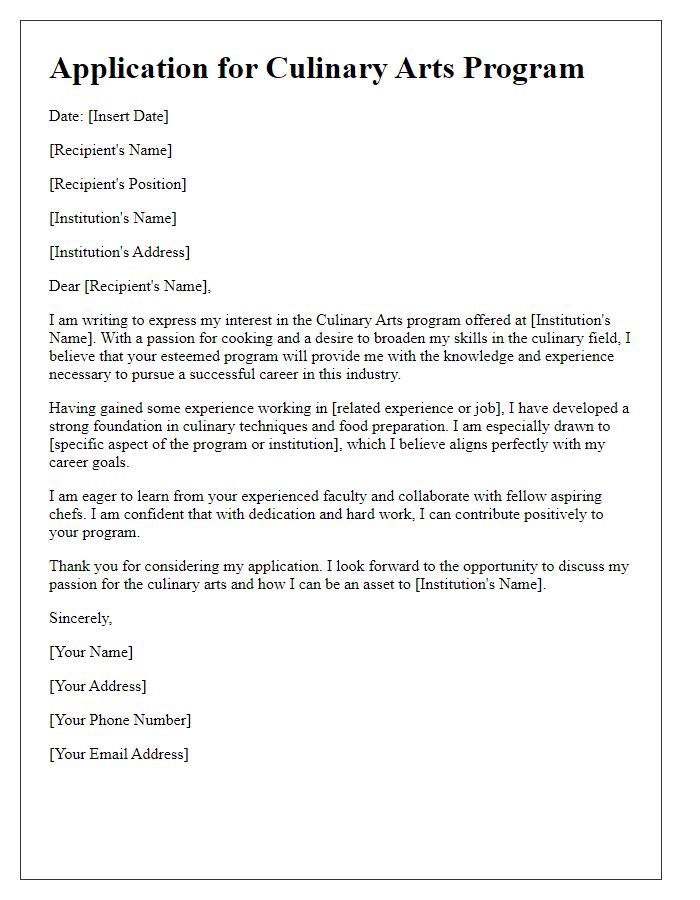
Letter template of culinary arts application for internship opportunities.
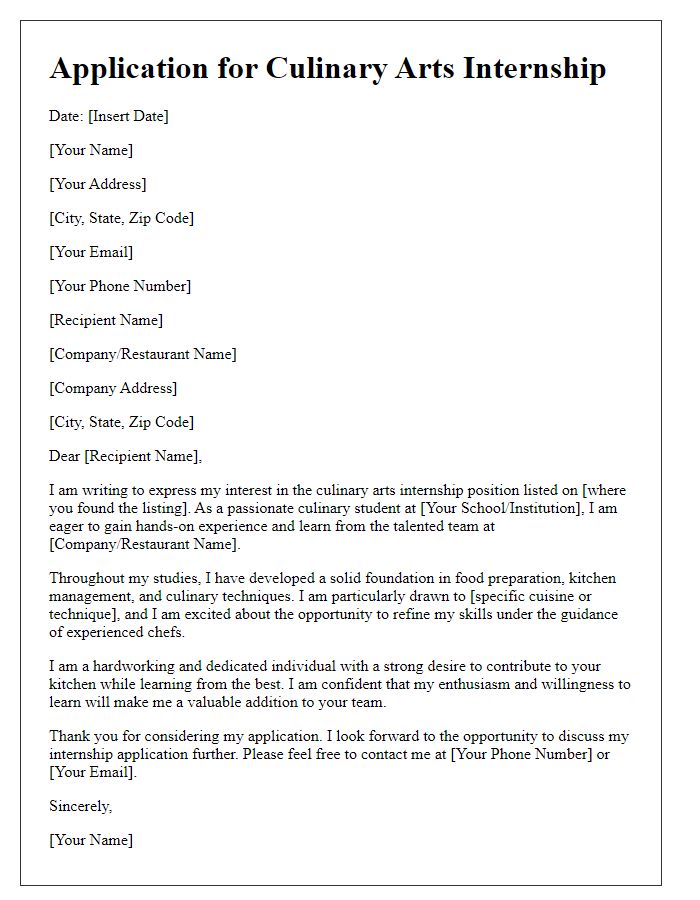
Letter template of culinary arts application for job positions in restaurants.
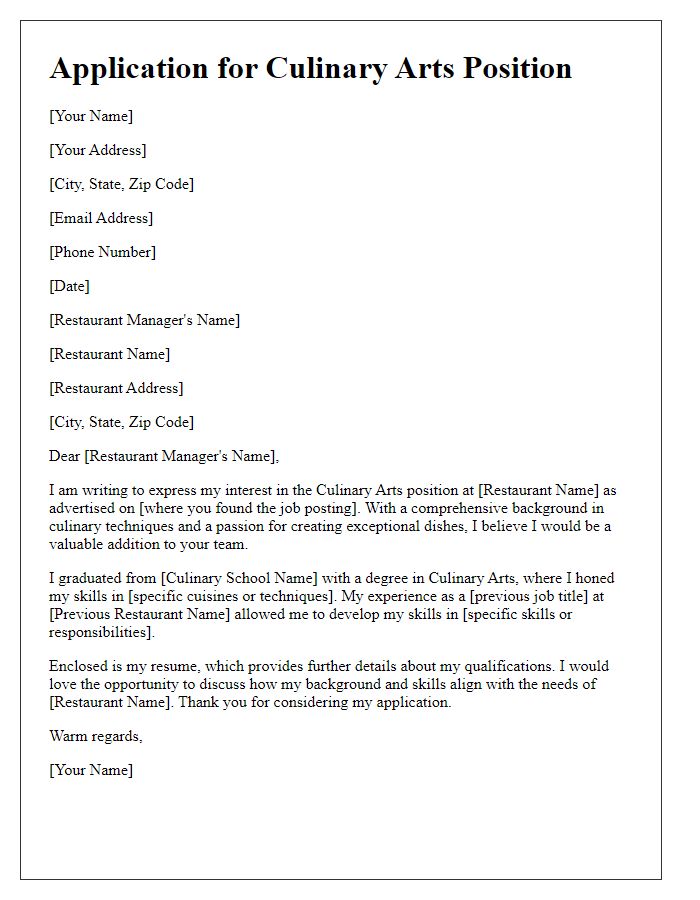
Letter template of culinary arts application for stage or externship placements.
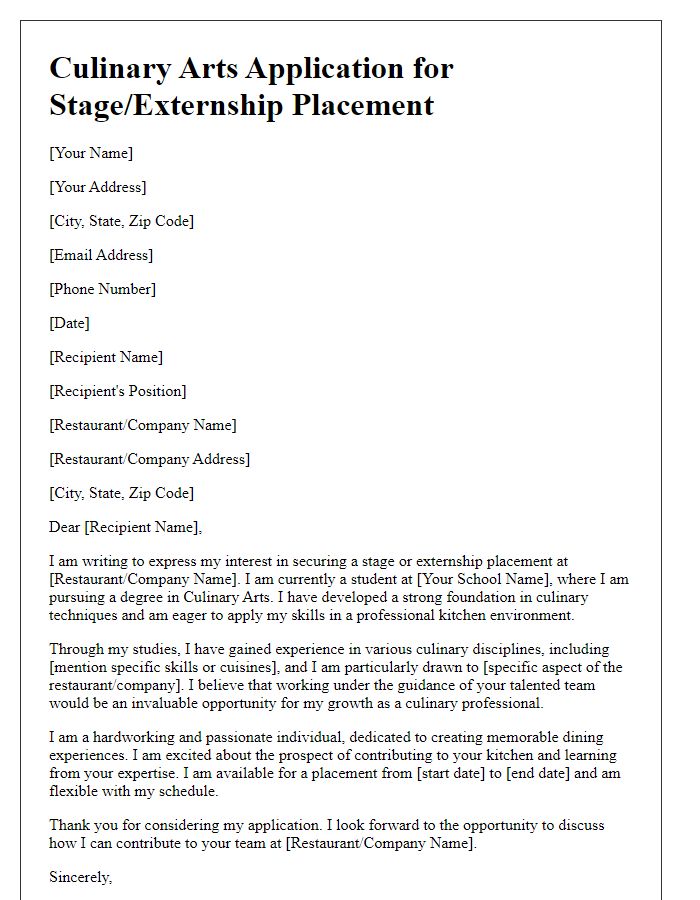
Letter template of culinary arts application for culinary workshops or masterclasses.
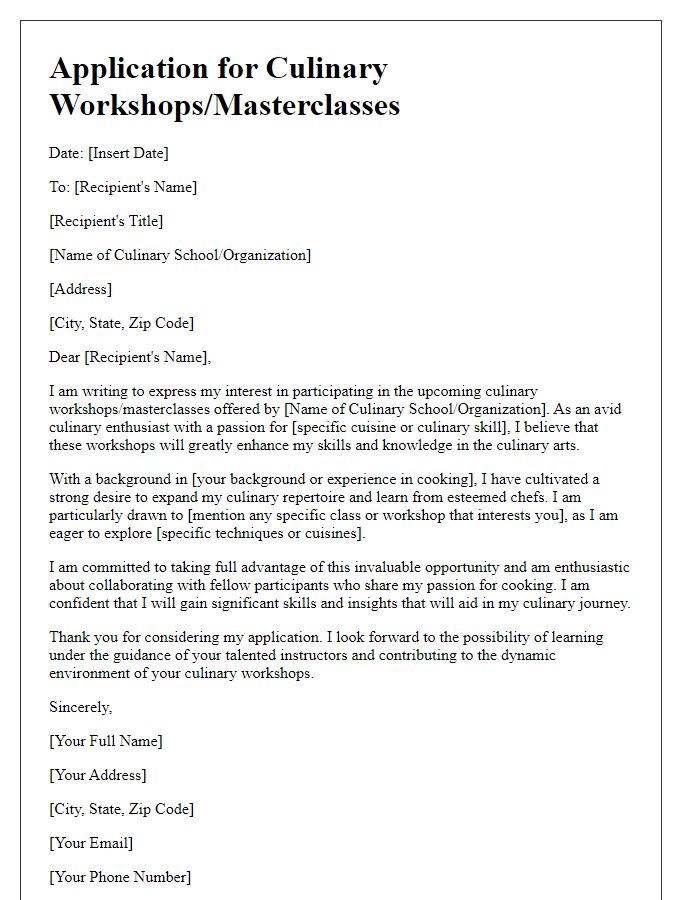
Letter template of culinary arts application for culinary school transfers.
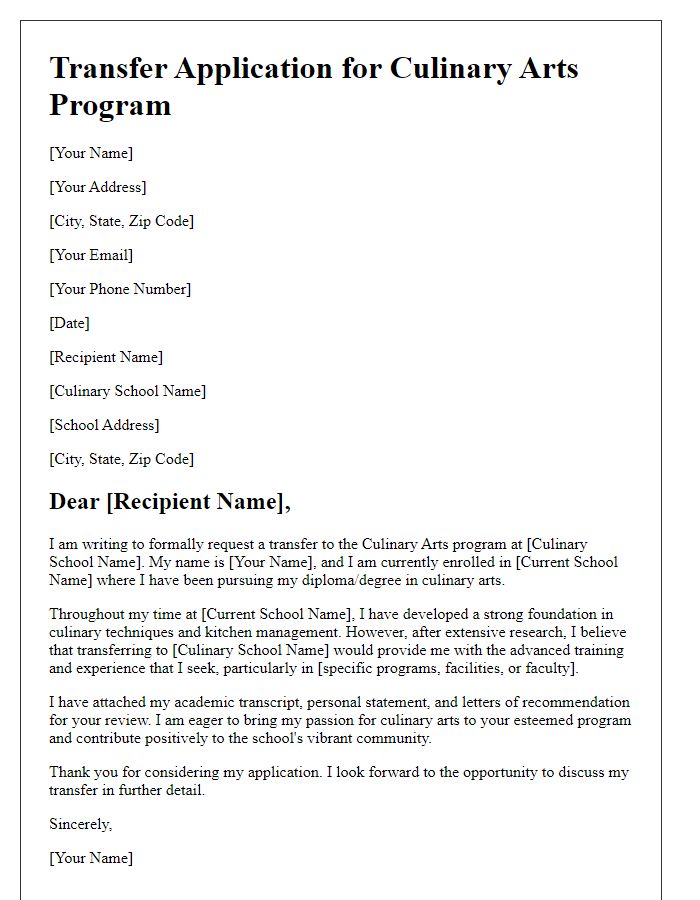
Letter template of culinary arts application for community college programs.
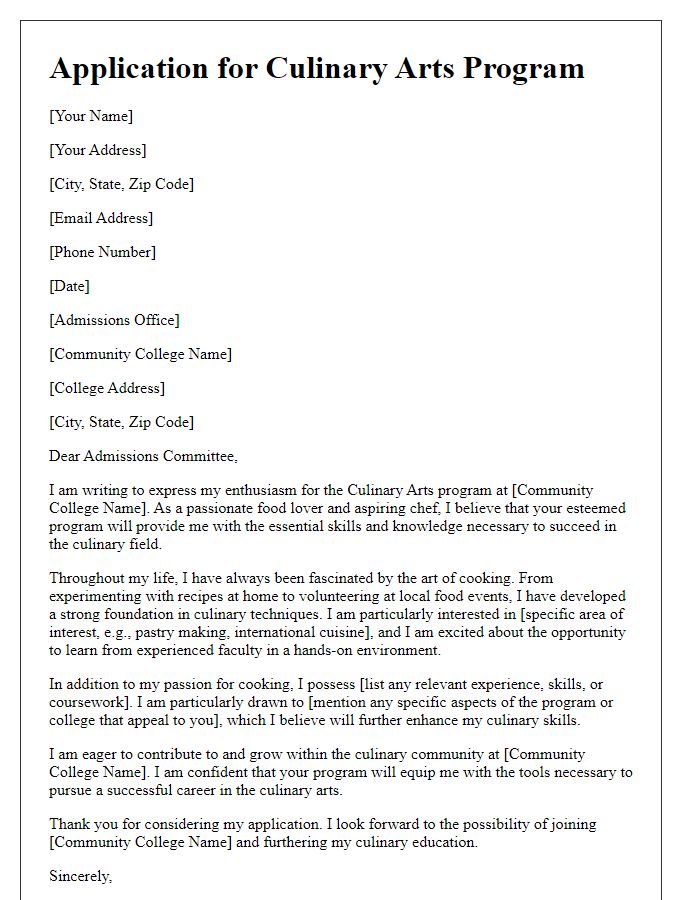

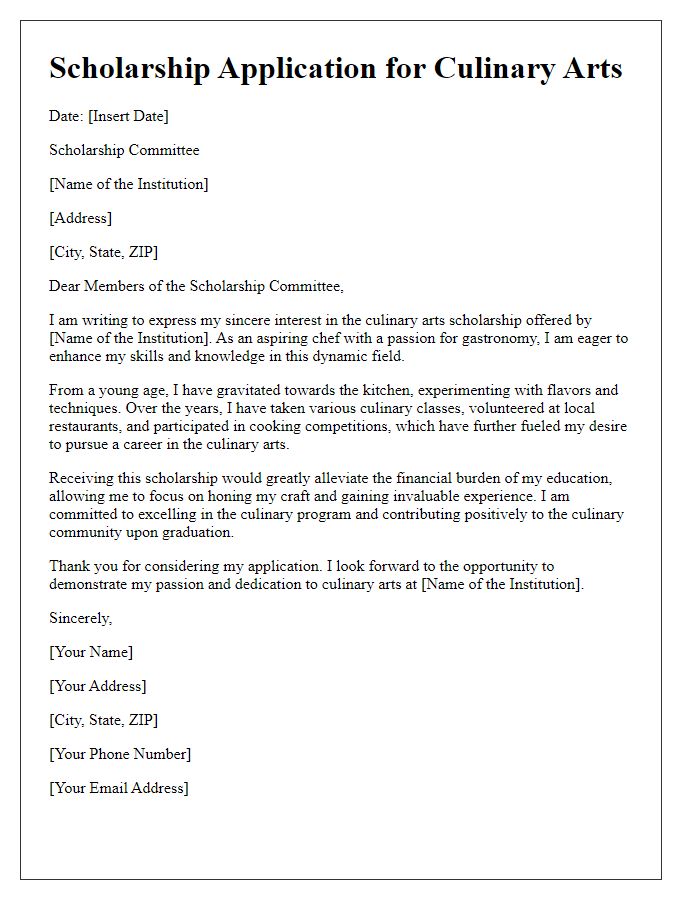
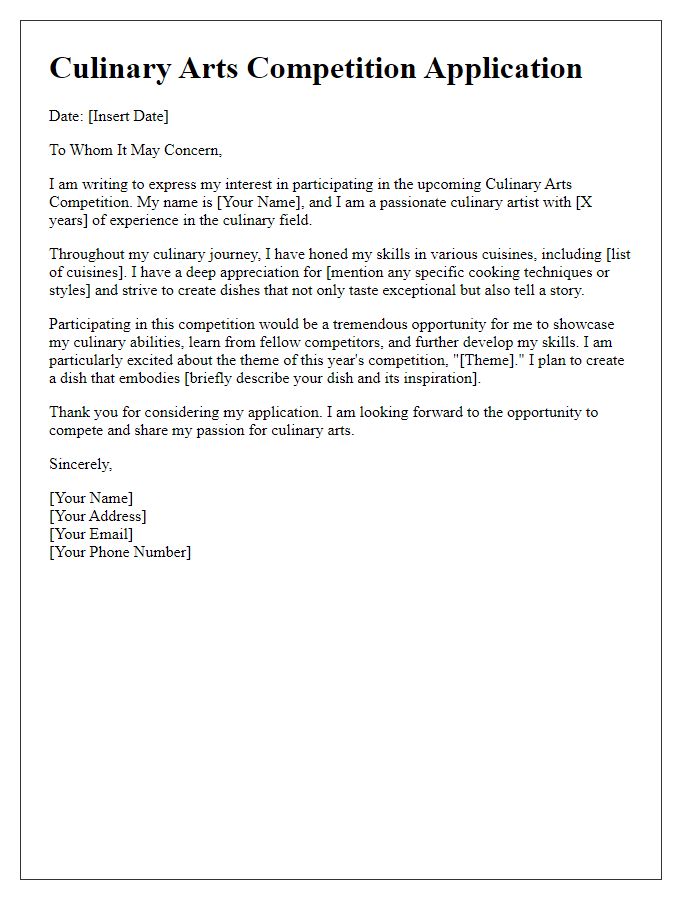
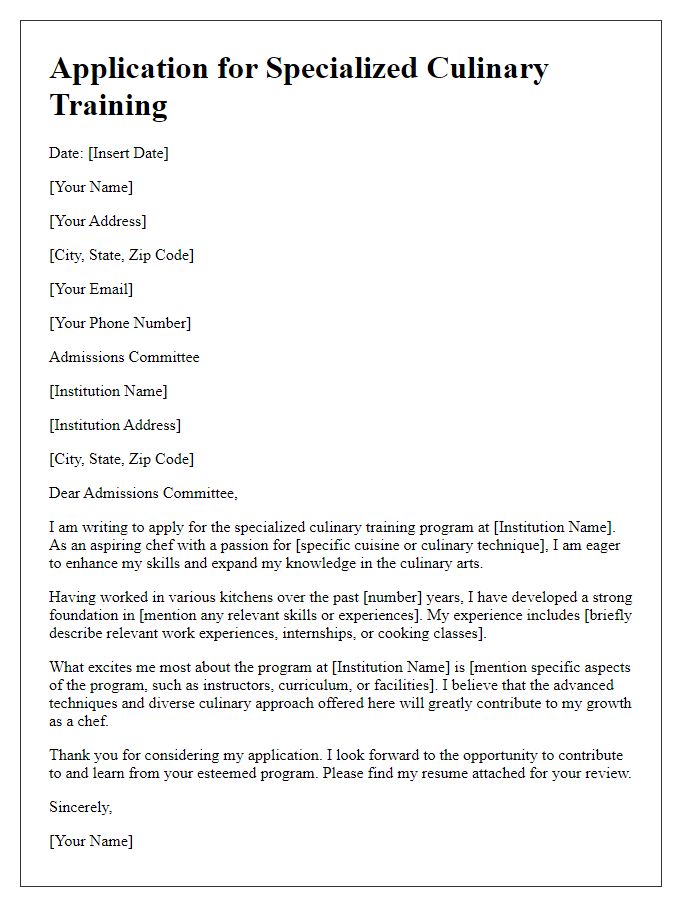


Comments